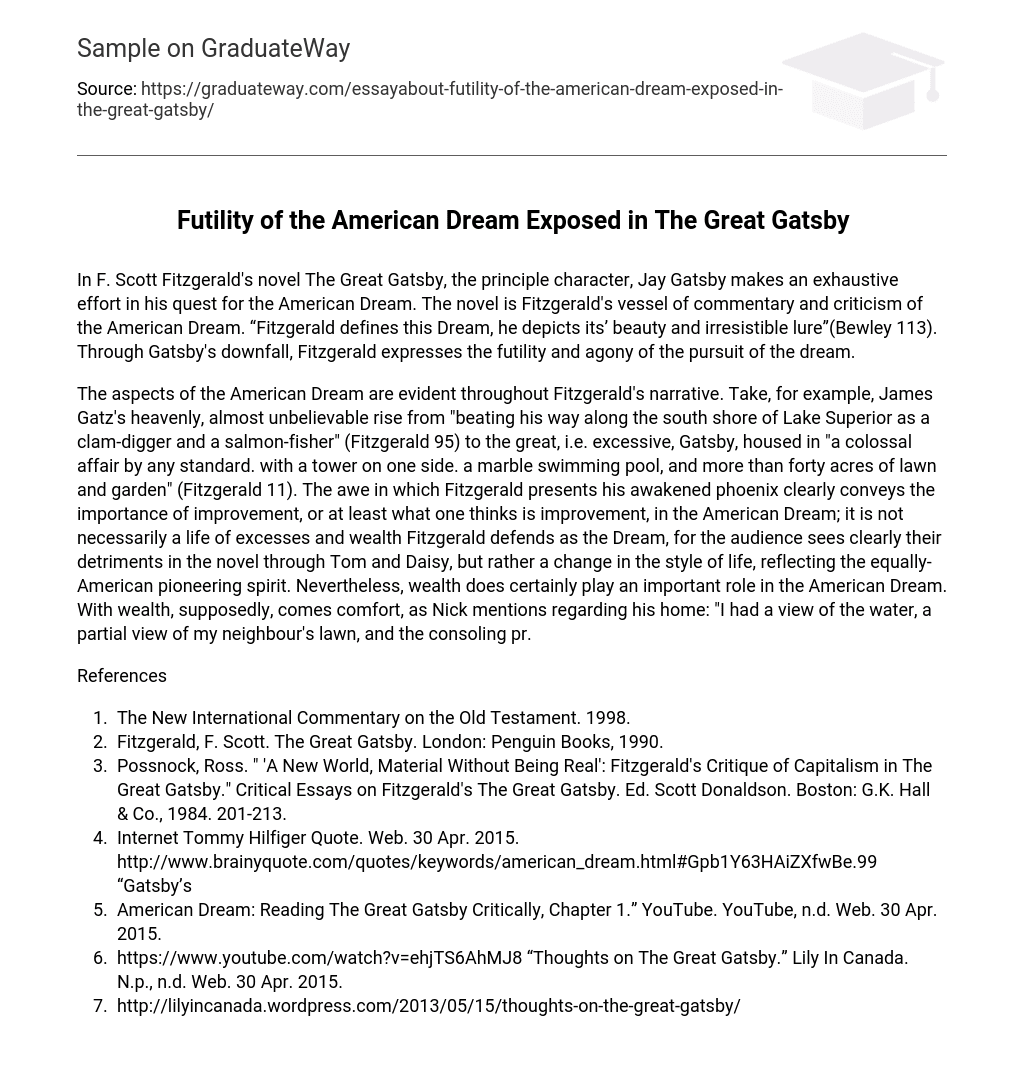In F. Scott Fitzgerald’s book The Great Gatsby, the main character, Jay Gatsby, puts in a lot of effort to achieve the American Dream. The novel serves as Fitzgerald’s way of commenting on and criticizing the American Dream. According to Bewley (113), Fitzgerald both defines and portrays the allure and splendor of this Dream. Through Gatsby’s downfall, Fitzgerald communicates the senselessness and pain in trying to attain the dream.
The American Dream is evident in Fitzgerald’s narrative, specifically in James Gatz’s remarkable rise from a clam-digger and salmon-fisher to the grandiose Gatsby, living in a colossal estate with luxurious amenities. Fitzgerald emphasizes the importance of improvement and change in the American Dream, rather than a life of excess and wealth. However, wealth does play a significant role in the Dream, as it brings comfort and opportunities for a better life.
References
- The New International Commentary on the Old Testament. 1998.
- Fitzgerald, F. Scott. The Great Gatsby. London: Penguin Books, 1990.
- Possnock, Ross. ” ‘A New World, Material Without Being Real’: Fitzgerald’s Critique of Capitalism in The Great Gatsby.” Critical Essays on Fitzgerald’s The Great Gatsby. Ed. Scott Donaldson. Boston: G.K. Hall & Co., 1984. 201-213.
- Internet Tommy Hilfiger Quote. Web. 30 Apr. 2015. http://www.brainyquote.com/quotes/keywords/american_dream.html#Gpb1Y63HAiZXfwBe.99 “Gatsby’s
- American Dream: Reading The Great Gatsby Critically, Chapter 1.” YouTube. YouTube, n.d. Web. 30 Apr. 2015.
- https://www.youtube.com/watch?v=ehjTS6AhMJ8 “Thoughts on The Great Gatsby.” Lily In Canada. N.p., n.d. Web. 30 Apr. 2015.
-





